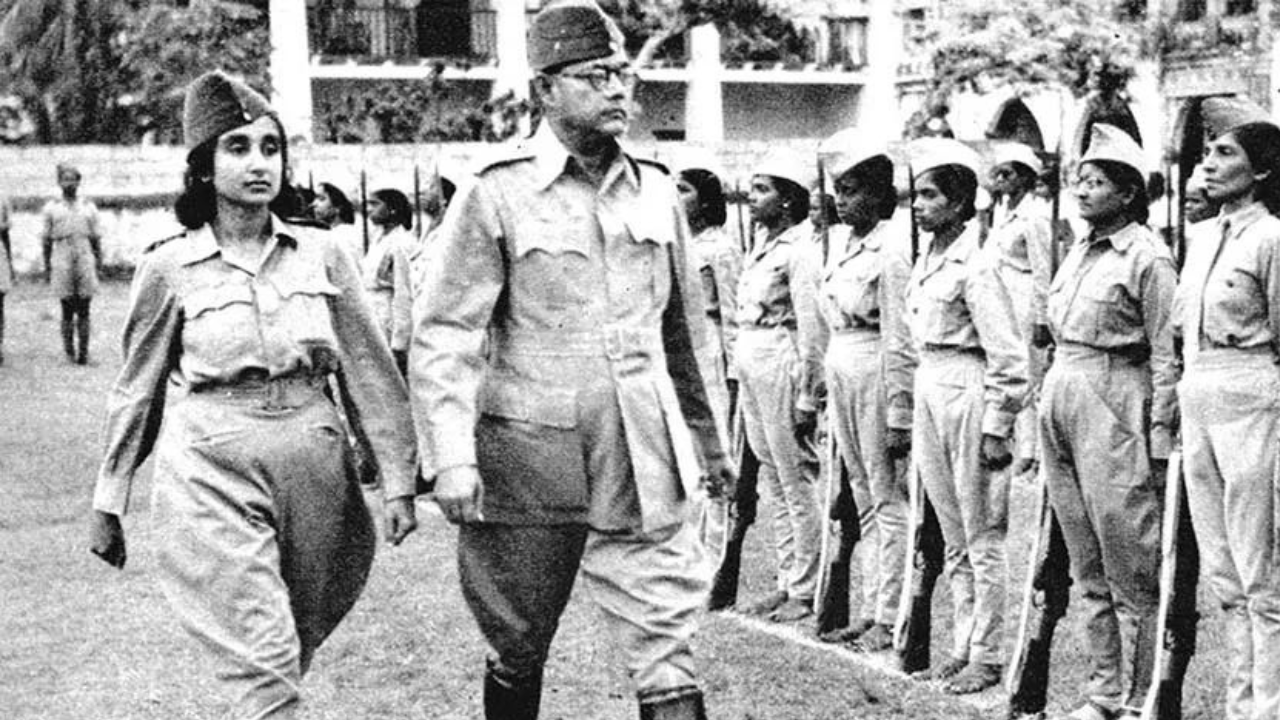Early Life and Ideological Influences
Subhas Chandra Bose was the ninth child of Janakinath Bose and Prabhavati Devi. A brilliant student, he was deeply influenced by the teachings of Swami Vivekananda and Ramakrishna Paramhansa. These early influences instilled in him a strong sense of nationalism and a desire to see India free from British rule.
Bose’s political journey began when he joined the Indian National Congress (INC). However, his views soon diverged from the mainstream leadership, particularly those of Mahatma Gandhi. While Gandhi advocated for non-violent resistance, Subhas Chandra Bose believed that the British would only be driven out by force. This ideological difference eventually led to a split, with Bose forming his own path in the struggle for independence.
The Rise of Subhas Chandra Bose
Subhas Chandra Bose’s rise in the Indian political landscape was meteoric. In 1938, he was elected as the President of the Indian National Congress, a position that highlighted his growing influence. However, his radical views and insistence on immediate and complete independence clashed with the more moderate faction of the Congress. Despite his differences with other leaders, Bose’s popularity among the masses continued to grow.
In 1939, Subhas Chandra Bose was re-elected as the Congress President, defeating Gandhi’s nominee, Dr. Pattabhi Sitaramayya. This victory, however, deepened the rift between Bose and the Congress leadership. Unable to reconcile his views with the party’s direction, Bose resigned from the Congress and went on to form the Forward Bloc, a faction within the Congress that advocated for more aggressive action against British rule.
Formation of the Indian National Army
One of the most significant contributions of Subhas Chandra Bose to India’s freedom movement was the formation of the Indian National Army (INA). After escaping house arrest in 1941, Bose traveled to Germany and later to Japan, where he sought support from the Axis powers for India’s independence. It was during this time that he took command of the INA, which was composed of Indian soldiers who had been captured by the Japanese during World War II.
He famously proclaimed, “Give me blood, and I will give you freedom,” rallying thousands of Indians to join his cause. The INA’s campaigns in Burma and northeastern India, although ultimately unsuccessful, played a crucial role in weakening British control over India and boosting the morale of the Indian independence movement.
Subhas Chandra Bose’s Legacy
Subhas Chandra Bose’s impact on India’s freedom movement is immeasurable. His relentless pursuit of independence, his unwavering belief in the power of armed struggle, and his ability to inspire millions of Indians have cemented his place as one of the greatest leaders in India’s history.
While his methods were controversial and his alliances with Axis powers during World War II remain a topic of debate, there is no denying that Subhas Chandra Bose’s efforts accelerated the end of British rule in India. His legacy lives on in the hearts of millions of Indians who remember him as Netaji, a leader who dedicated his life to the cause of India’s freedom.
Conclusion
Subhas Chandra Bose and his impact on India’s freedom movement continue to be a source of inspiration for generations. His vision for a free India, his courage to challenge the might of the British Empire, and his willingness to go to any lengths for his country’s independence make him a revered figure in Indian history.

